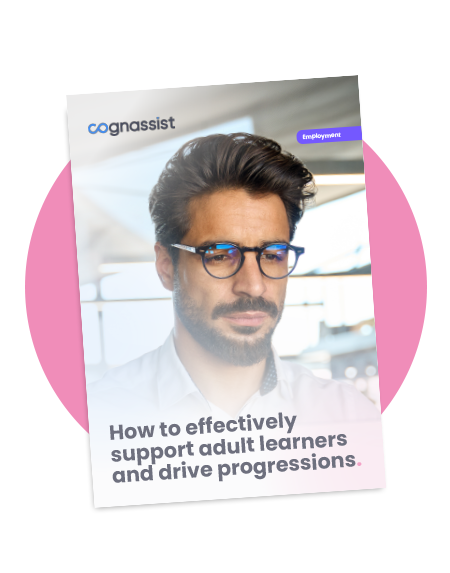The government is working hard to deliver lifetime skills for people looking to gain employability and upskill.
Adults seeking this type of training will come from a range of backgrounds, some will be unemployed, some will be switching careers, some could be recently redundant from a job they may have had for many years, some may have lost their apprenticeship, or some may be re-entering education for the first time since leaving school.
We have to be ready to support adult learners, regardless of their background, who will have to balance study with work, financial or caring responsibilities and will each learn at their own pace.
Ask yourself…
What measures do you have to support these learners?
How does your provision identify and safeguard the needs of these learners to build confidence and start a new journey in education and work?
And are you using your AEB allocation to the advantage of your learners?
Providing a higher level of service, with greater funding to support learners that helps to prevent needless budget underspend.
This is the power of identifying learning needs, needs that can be met by your organisation.
Diversity and inclusivity in education are at the forefront of all high-level conversations. People want practical solutions that help to increase access to education.
But without knowing how someone thinks and learns, how can you understand their challenges and train them effectively?
And how can they start to see a road map ahead?
One that shows they’re not bad at learning and gives them the opportunity to think differently about themselves and their own abilities.
This ‘How to effectively support adult learners and drive progressions’ handbook is here to show you how you can help.







